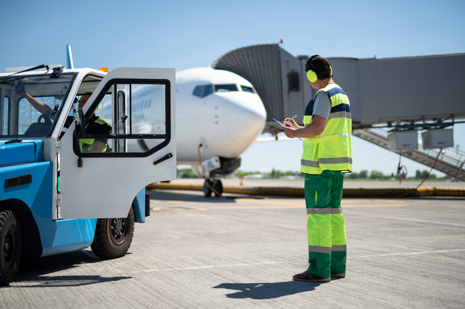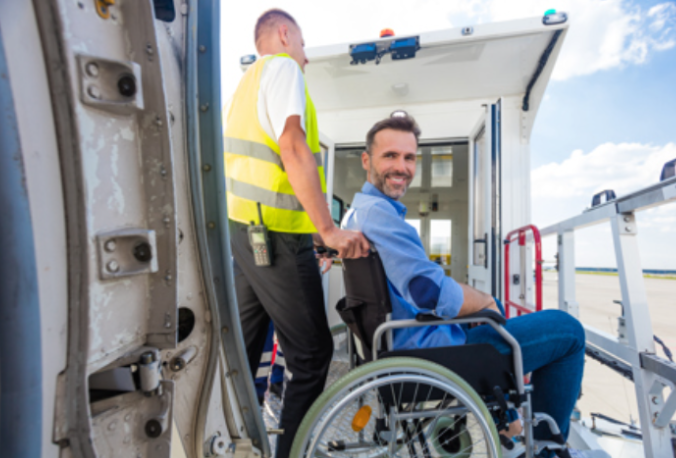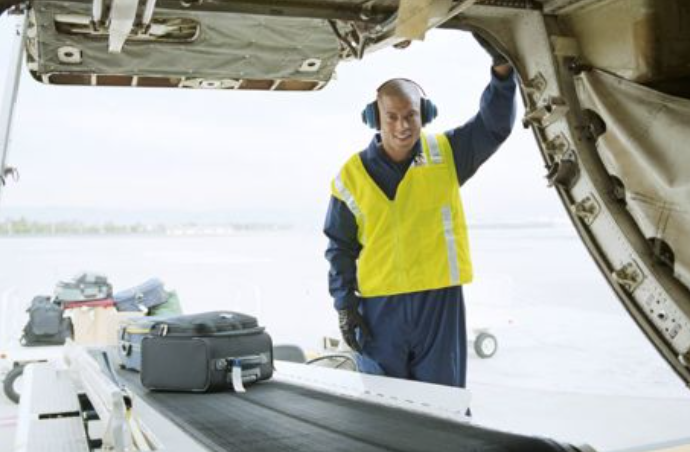
Efficient ground operations are crucial within the constantly changing realms of aviation and logistics, ensuring smooth connections and prompt transportation of goods and individuals. As industries adapt to new challenges and opportunities, staying informed about the latest trends remains of utmost importance. The IATA Ground Operations Webinar Series was created to cover six key topics in the industry, increase knowledge and shed light on the future of ground operations. The first part of the webinar series covered autonomous ground service equipment, The Standard Ground Handling Agreement and training standardization. In this article, we'll delve into the key takeaways from the second half of the webinar series and explore how they contribute to shaping the future of ground operations.

The fourth webinar, "Exploring Accessibility: Mobility Aids Handling" brought together Linda Ristagno from IATA, John Kirn from United Air Lines, Mouza Saeed Rumaihi from dnata, Eric Lipp from Open Doors Organization and Shelley Roberts from the National Research Council of Canada. The discussion focused on the safe and dignified travel of persons with disabilities traveling with their own mobility aids. The airline industry is committed to ensuring that safe, reliable and dignified air travel is equally accessible to all passengers. Airlines and airports are working with representative groups from the accessibility community to make flying as hassle-free as possible. As a key takeaway, important stakeholders within the aviation sector underscored the importance of open communication and collaboration with the disability community. This partnership seeks to identify and address the existing gaps in communication channels, ensuring that the needs and concerns of individuals with disabilities are heard, understood, and effectively addressed. The aim is to also reduce the damage of mobility aids and improved training for the safe loading and securing of mobility aids in the cargo compartment of the aircraft.

The fifth webinar, “Taking a Closer Look: Travel Document Check” explored the current practice of manually confirming passengers' identities and ensuring adherence to immigration rules. Our guest speaker Mahir Sahin from IATA explained how manual checks are not efficient due to the high cost and time-consuming nature for check-in and boarding staff. During the presentation, the challenges surrounding travel document compliance and how they can be addressed were discussed and we looked at the future of travel document compliance. A key takeaway point from this webinar was how to automate and improve the check-in process, aiming to efficiently handle passengers while prioritizing customer satisfaction, reducing risks, and maximizing the use of available resources. For additional information on travel document checks visit Timatic.

The sixth and final webinar in the series, “Ensuring Efficient Baggage Operations through Standardization” assembled Getnet Taye from IATA, Niueni Tugaga from Air New Zealand, Eleonore Wenzi-Bery from Lufthansa Group, Mohamed Arshad Khan from Abu Dhabi Airport and Timos Korosis from Aegean Airlines. Their focus was on developing ways to enhance the standardization and harmonization of baggage procedures, aiming not only to meet but also exceed passengers' expectations regarding efficiency and punctuality. The speakers took a deep dive into some of the critical baggage processes such as baggage auto-reflighting, resolution 753 implementation as well as prorate and claims. As a key take away point, to meet the increasing expectations of passengers, we need to enhance the travel experience. One way of doing this is to improve operational efficiency by embracing modernization and technology. It is now more than ever also important to put a strong emphasis on well-defined, industry-wide, accepted standards to guide and implement these technological developments.
The three webinars, "Exploring Accessibility: Mobility Aids Handling", “Taking a Closer Look: Travel Document Check” and “Ensuring Efficient Baggage Operations through Standardization” touched upon key areas of interest in the ground operations industry today. Through a better understanding of how to improve the travel experience of those traveling with mobility aids, automating the travel document check process, and standardizing baggage operations to decrease the mishandling of bags, we can improve passenger satisfaction.
Staying informed of the most recent advancements and developments in ground operations and logistics is imperative to uphold a competitive advantage amidst their evolving landscapes. The latest editions of the Airport Handling Manual (AHM), IATA Ground Operations Manual (IGOM) and Baggage Reference Manual (BRM) are vital resources to help you to stay up-to-date with the latest standards. As ground operations is constantly changing, be sure to keep your skills sharp with our ground operations training courses. The insights gained from these webinars and the Ground Operations Webinar Series will help you to improve your day-to-day operations. The aim of the webinar series is to facilitate greater industry alignment on crucial subjects related to ground operations, fostering a collective understanding among all stakeholders.